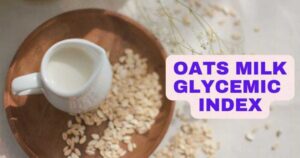Cal in English
- The translation of Cal in English is “Calorie”
What is Cal?
Cal Translation to English is Calorie. It is a unit of measurement used to quantify the energy content in food and beverages. Specifically, it represents the amount of heat energy required to raise the temperature of one gram of water by one degree Celsius. In the context of nutrition, calories refer to the energy that our bodies obtain from the food we consume.
The calorie content of food is determined by its macronutrient composition, which includes carbohydrates, proteins, and fats. Each gram of carbohydrates or protein provides approximately four calories, while each gram of fat provides approximately nine calories. Alcohol also contains calories, providing approximately seven calories per gram.
Calories serve as fuel for our bodies, allowing them to perform essential functions such as breathing, circulating blood, and repairing cells. When we consume food, the body breaks down the macronutrients through digestion and absorbs the nutrients into the bloodstream. These nutrients are then utilized by cells for energy.
It’s important to note that not all calories are created equal. While the calorie content of food is important for understanding energy intake, the nutritional value of the food should also be considered. Nutrient-dense foods, such as fruits, vegetables, whole grains, and lean proteins, provide not only calories but also essential vitamins, minerals, and other beneficial compounds.
Managing calorie intake is essential for maintaining a healthy weight. Consuming more calories than the body needs can lead to weight gain, while consuming fewer calories than needed can result in weight loss. However, it’s important to approach calorie intake in the context of overall nutrition and a balanced diet, ensuring that the body receives an adequate amount of essential nutrients.
BUY CALORIE TRACKER ONLINE
Unveiling the Science of Cal
Introduction: Calories play a vital role in our understanding of nutrition and the energy balance within our bodies. Let’s dive in and discover the fascinating world of calories.
- Caloric Intake and Energy Balance: Understanding caloric intake is crucial in maintaining a healthy weight and overall well-being. Our bodies require a certain amount of energy to function optimally, and this energy comes from the calories we consume. The concept of energy balance comes into play here, which involves balancing the calories we consume with the calories we expend through physical activity and bodily processes. Consuming more calories than we burn can lead to weight gain, while burning more calories than we consume can result in weight loss.
- Sources of Calories: Not all calories are created equal. The sources of our calories have varying effects on our health. Carbohydrates, proteins, and fats are the three main macronutrients that provide calories in our diet. Carbohydrates and proteins provide four calories per gram, while fats provide nine calories per gram. It’s important to prioritize nutrient-dense foods that offer essential vitamins, minerals, and fiber, rather than relying on empty calories from processed and sugary foods.
- The Role of Calories in Metabolism: Our body’s metabolism is a complex process that involves converting calories into energy. The calories we consume are broken down through digestion, and the nutrients are absorbed into the bloodstream. From there, the body utilizes these nutrients to fuel various physiological processes. The basal metabolic rate (BMR) represents the number of calories our body needs at rest to maintain essential functions. Additionally, physical activity and the thermic effect of food (the energy required for digestion) contribute to our overall calorie expenditure.
- Calorie Awareness and Health: Being mindful of our caloric intake is important for maintaining a balanced and healthy lifestyle. Understanding the caloric content of the foods we consume allows us to make informed choices about our diet. However, it’s essential to remember that calories are not the sole determinant of nutritional value. Nutrient density, portion sizes, and overall dietary patterns also play crucial roles in our health.








